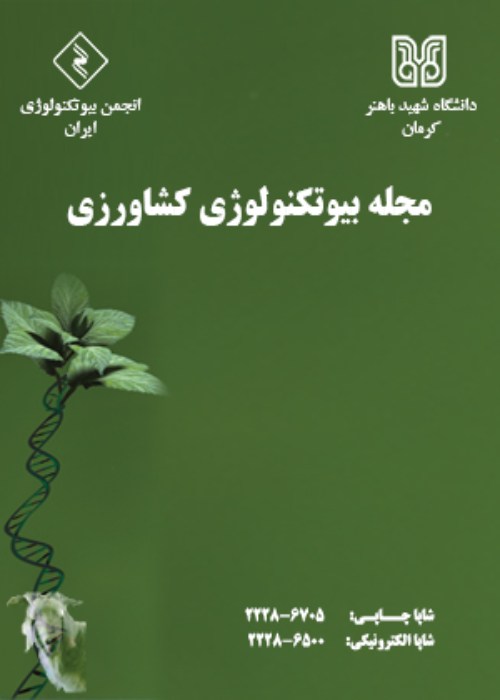The effect of increasing genomic DNA content on catalase gene expression and salinity resistance in two sugarcane cultivars
Sugarcane (Saccharum officinarum L.) is a commercial plant that extracts more than 70% of the sugar produced worldwide. Salinity in many arid and semi-arid regions of the world is considered as a major problem and limiting factor for growth, quality and yield of crops including sugarcane. Chromosome manipulation of the plant species is one of the most powerful methods of plant breeding because of its effect on some morphological, physiological and genetic variation. The aim of this study was to investigate the effect of different levels of colchicine mutagen on changes in DNA content and to investigate the effect of increasing DNA content on the transcription rate of catalase gene.
In this experiment, sugarcane seedlings were treated with colchicine (concentrations of 0, 100, 200 and 400 mg / L) in two CP48 and CP69 cultivars for 8, 24 and 48 hours, respectively. The plants were then examined for morphological and physiological characteristics. Plants were then exposed to saline stress (200 mM NaCl) and normal. After applying stress, plants with probable polyploidy were examined for genetic content using flow cytometry. Also, to investigate the expression pattern of Catalase gene (CAT2), leaf sampling was done 24 h after salinity stress from control and stressed plants.
The results showed that viability, height and density of stomata decreased with increasing colchicine concentration and duration of treatment. However, stomata size increased with increasing colchicine concentration and duration of treatment and chlorophyll and photosynthesis increased with increasing duration of treatment. The results showed that the expression of this gene was significantly increased in both CP48 and CP69 cultivars under salinity stress. The expression of this gene was increased in CP69 cultivar treated with colchicine and this increase was significant at 200 mg / L colchicine. While in CP48 cultivar the effect of colchicine treatment was not significant.
Based on the above results, it can be concluded that increasing the genetic content of sugarcane can improve salinity resistance.
- حق عضویت دریافتی صرف حمایت از نشریات عضو و نگهداری، تکمیل و توسعه مگیران میشود.
- پرداخت حق اشتراک و دانلود مقالات اجازه بازنشر آن در سایر رسانههای چاپی و دیجیتال را به کاربر نمیدهد.



